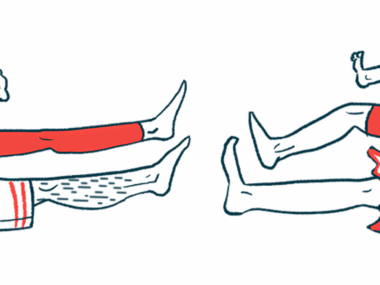Entacapone alters microbes in the gut via iron starvation: Study
Supplementing with iron may help prevent therapy's side effects
Written by |

The Parkinson’s disease therapy entacapone may disrupt the balance of microbes in the gut by starving them of iron, a study in healthy human fecal samples suggests.
Supplementing patients with iron could prevent entacapone’s gastrointestinal side effects, but more research is needed to fully understand how the medication affects the gut in people with Parkinson’s disease.
“To better understand the long-term effects of entacapone … it would be important to follow a cohort of [Parkinson’s disease] patients before and during entacapone treatment,” the researchers wrote.
The study, “The Parkinson’s disease drug entacapone disrupts gut microbiome homoeostasis via iron sequestration,” was published in Nature Microbiology.
Accumulating evidence indicates many medications can disrupt the gut microbiome, the constellation of bacteria, viruses, and fungi that populate the gastrointestinal tract.
The delicate balance of these microbes is important for digestion, immune function, and other aspects of human health. When they’re disturbed, a condition called gut dysbiosis, gastrointestinal issues and other health problems can result. Medication-microbiome interactions also can influence the efficacy of treatments or contribute to their side effects. In particular, medications that target the nervous system appear to have strong effects on the microbiome. It’s important to understand how this comes about, given that gut dysbiosis has been implicated in several neurological diseases, including Parkinson’s.
Entacapone, sold in the U.S. as Comtan with generics available, is an approved oral therapy that’s used to help prevent Parkinson’s motor symptoms from returning between doses of levodopa, the mainstay Parkinson’s therapy. It works by inhibiting the enzyme COMT, which prevents levodopa’s degradation in the bloodstream.
Studies have shown entacapone can affect gut microbes. Some of its most common side effects are gastrointestinal, including diarrhea, abdominal pain, nausea, and vomiting.
Changes to gut microbiome with entacapone
Here, scientists collected fecal samples from healthy human donors, incubated them with the medication, and then used techniques to examine how this influenced the abundance and activity of microbes to examine the potential effects of entacapone on the gut microbiome.
Entacapone led to “ major shifts in microbial communities,” with the growth of some microbes severely depleted while others seemed to thrive more than usual, the researchers said. In particular, there was a dramatic increase in Escherichia coli bacteria with entacapone exposure. Not all strains of E. Coli are problematic, but some can cause infections with symptoms such as diarrhea and vomiting.
The scientists also looked at the effects of a schizophrenia medication called loxapine and found it also disturbed the microbiome, although the pattern was different and less pronounced than with entacapone.
Other experiments showed entacapone induced a state of iron starvation in the samples. Iron is a nutrient that’s “essential for the growth of most gut microbes,” the authors wrote.
Adding iron to the fecal samples counteracted entacapone’s effects on the microbiome. Not only did it enable microbes inhibited by entacapone to grow, it also seemed to restrict the accelerated growth of potentially harmful microbes like E. Coli.
Experiments also showed E. Coli is likely able to grow well in the presence of entacapone because it has a very efficient iron uptake system that enables it to overcome the iron starvation that depletes other microbes.
“By showing that entacapone induces iron deficiency, we have uncovered a new mechanism of drug-induced gut dysbiosis, in which the drug selects for E. coli and other potentially [harmful] microbes well adapted to iron-limiting conditions,” senior author Michael Wagner, PhD, of the University of Vienna, said in a university news story.
Understanding how entacapone works could help researchers find ways to ease side effects associated with the medication. The findings may also have implications for other medications that might affect the microbiome similarly. Making sure the gut has enough iron could prevent gut dysbiosis and any gastrointestinal side effects that Parkinson’s patients have from such medicines.
“The next step is to explore how we can modify drug treatments to better support the gut microbiome,” Wagner said. “We are looking at strategies to selectively deliver iron to the large intestine, where it can benefit the microbiome without interfering with drug absorption in the small intestine.”






